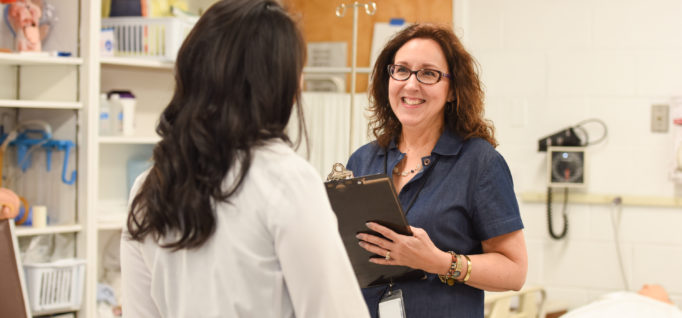Filling the Need for Health Care Interpreters
By AACC 21st Century Center Staff
July 21, 2016
A new Health Care Interpreter Certificate Program at Howard Community College addresses a growing need for interpreters.
In Howard County, Maryland, 18.2 percent of residents are foreign born and 22.5 percent speak a language other than English at home. This has created a demand for interpreters. Nationally, job growth for interpreters and translators is growing faster than average, according to the U.S. Bureau of Labor Statistics. About 17,500 new jobs will be created between 2014 and 2024.
Howard Community College (HCC) is developing a new program to meet that demand.
A 14-week Health Care Interpreter Certificate Program will teach bilingual students how to effectively interpret in health care settings. The program is supported by a $166,690 grant from the Horizon Foundation. The foundation reached out to local health care providers, non-English speaking community representatives and educators to talk about health care barriers. Interpretation issues rose to the top.
There are three major elements to this program: instructor training, a health care language coach training and the certificate program itself, which provides bilingual and bicultural students the knowledge and skills needed to be effective in health care settings.
While the college is using the City College of San Francisco’s Health Care Interpreter Certificate program as a model, HCC also is working with community partners to develop a program that best addresses local needs.
“We set out to develop a rigorous, quality health care interpreter certificate program at HCC,” HCC President Kate Hetherington says in a press release. “We believe our program has some truly unique elements that sets it apart from anything else in the region and ensures our students are highly prepared and ready to start interpreting upon certificate completion.”
Unique to the program are language coaches, who will assist instructors and practice role-playing with students while monitoring their linguistic and cultural understanding. And while many programs only require 40 hours of instruction, HCC offers 100 hours of classroom instruction, as well as fieldwork in health care settings.
A recently trained instructor and coach in the program, Lisette Albano understands the importance of the program. Albano is a native of Cuba who moved to the United States at age 14. As a teenager, she watched her friends accompany their immigrant parents to doctor’s visits to serve as interpreters.
“There is so much nuance to health care interpreting,” Albano says. “Only a trained interpreter can offer the unbiased and knowledgeable assistance needed.”
Upon successful completion of the certificate program, students will be ready to work with patients and healthcare providers in a variety of settings—and they’ll earn a good salary while doing it. The U.S. Bureau of Labor Statistics reports that Maryland is one of the top paying states for interpreters and translators, averaging $30.25 an hour or $62,910 a year. The nearby District of Columbia and Virginia are also in the top five.
HCC anticipates offering the program beginning this fall.
Read the full press release online.
Continue the conversation on our LinkedIn group.



